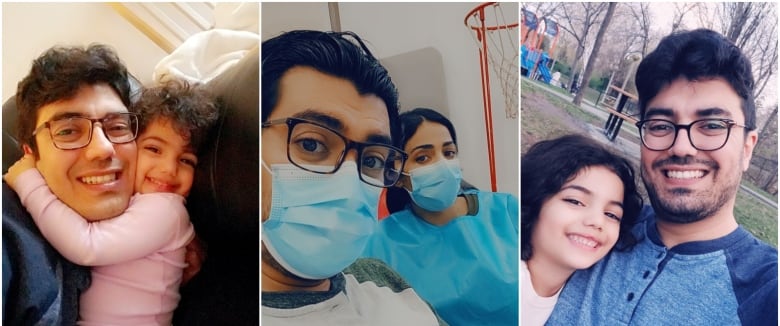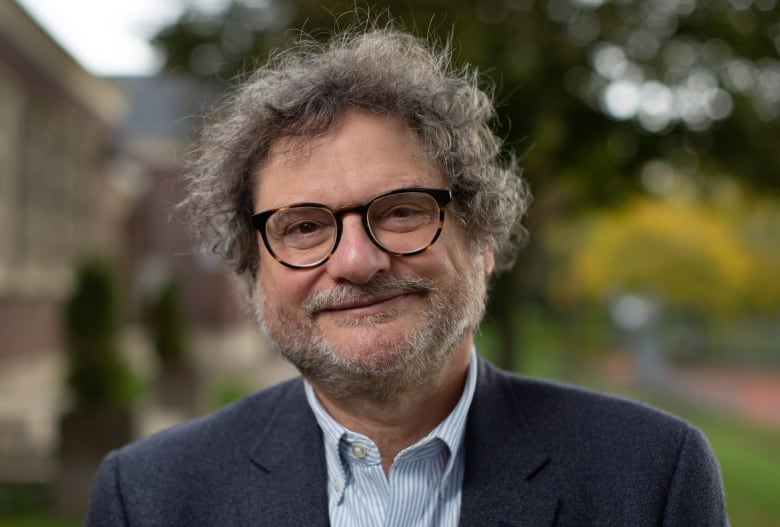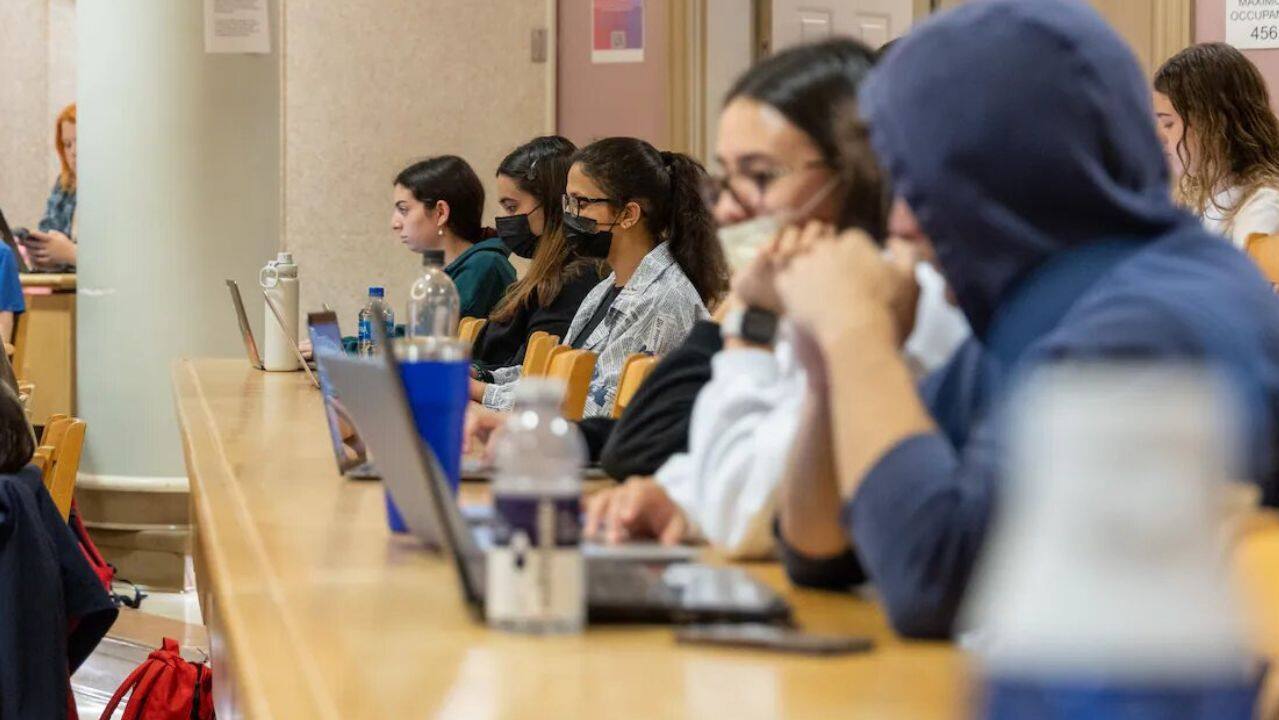The talents of Canada’s highly educated immigrants are going to waste, StatsCan says | CBC News
Being a physician has been a lifelong dream for 35-year-old Ayman Jabril. He’s passionate about caring for patients, clearly explaining medical treatments, and following up with them over time. He trained and worked as a physician in Yemen and Saudi Arabia, but has yet to make headway getting further training and certification in Canada, despite having completed a host of qualification exams since arriving in 2017.
He’s been juggling those exams while supporting his young family through a variety of jobs: as a driver for Uber and Amazon, delivering pizzas and, more recently, work as a medical screener and educator — advising community members about COVID-19 and administering vaccines.
“I’m doing a job in the field of medicine. But I’m not a physician,” Jabril said from Montreal, where he lives with his wife Maram Mohammed — also a foreign-trained physician — and young daughters Aseel and Leen.
A steady influx of highly educated immigrants has helped Canada keep its top ranking as the G7 nation with the highest percentage (57.5 per cent) of working-age people carrying credentials from college or university, according to Statistics Canada census data released Wednesday.
Yet the agency also suggested the country is “leaving talent on the table” by failing to recognize the training and qualifications of workers educated abroad once they’re here.
More than 1.3 million new immigrants settled her permanently between 2016 and 2021, says StatsCan, the highest such number ever in a Canadian census.

Nearly 60 per cent of working-age new immigrants (aged 25-64) hold a bachelor’s degree or higher, the agency said. However, a bit over 25 per cent with foreign degrees were overqualified for the jobs they have here; defined as working jobs that required a high school diploma at most.
The “mismatch” extends to high-demand sectors — like health care — which have been under tremendous strain amid the COVID-19 pandemic, StatsCan said. The agency found just 36.5 per cent of immigrants trained abroad in registered nursing were working in that field (or in a closely related occupation), for instance, and 41.1 per cent with foreign medical degrees were working as physicians.
Over the past few years, Jabril estimates he’s met over 150 foreign-trained physicians in Montreal alone and says they’ve all experienced essentially the same story about being stuck in place.
“I applied for more than 30 family medicine departments and internal medicine training programs all over the country,” he said.
“I applied from coast to coast … Newfoundland, Nova Scotia, Quebec, Ontario, Saskatchewan, British Columbia, Prince Edward [Island]. Unfortunately I didn’t get any explanation for what is my weakness or why I’m not on the selected list. If I knew the reason, I could improve myself for the next round.”
Highly educated immigrants have helped Canada maintain its ranking as the G7 nation with the highest proportion of working-age adults with a post-secondary degree, new data from Statistics Canada shows. But a large portion of those immigrants are in jobs they’re overqualified for.
‘We need to do a better job’
StatsCan’s overall data continues the trend of Canada having a highly educated workforce, which is good news for the country overall, says Harvey Weingarten, a higher education researcher and principal of the Michener Institute of Education at the University Health Network in Toronto.

However, “we need to do a better job” of assessing immigrants’ credentials, of “recognizing them and admitting them into professions,” he said.
“Should we worry about quality? Should we worry about assessing their credentials? Of course we should.
“We should be as efficient and as expert as possible at recognizing the credentials, accrediting them to work in Canada if their skills and knowledge are up to a Canadian standard and have a variety of programs that bring them up to the Canadian standard if we find that they’re deficient in some ways.”

That Canada has such a strong population of educated immigrants “is by design,” said Prachi Srivastava, associate professor in education policy and global development Western University in London, Ont.
Immigration policy has shifted to favouring those highly skilled in trades or with traditional academic degrees, she says.
“The paradox is, it’s actually very difficult to find employment within that sector. Yes, the often-cited example is doctors, but [it’s] also nurses. Also teachers.”
The issue isn’t simply Canadian; it’s an international concern that’s on the radar of UNESCO, she added. The United Nations education agency put forth a global convention in 2019 establishing principles for recognizing qualifications — to support those pursuing further post-secondary education internationally or to enter the labour market. The U.K. and Japan are among the 17 countries that have ratified the convention as of this past September. Canada has not.
Srivastava sees another UNESCO initiative — a type of passport aimed at refugees or other vulnerable people with qualifications — as something accreditation agencies, post-secondary institutions, industry bodies and policy-makers could consider so those immigrants don’t spend “years and years and years” trying to requalify for and gain employment in Canada.
“It’s self-defeating to not actually enable them to make the most of those opportunities,” she said.
For Jabril, the plan is to stay in medicine — he’s applying for physician’s assistant jobs in the Prairies and up north — to increase his experience caring for Canadian patients alongside Canadian doctors and nurses, with the goal of having his own practice again eventually.
While administering their COVID jabs, Jabril has heard from doctors about how stressed and overwhelmed they are currently and from regular folks about being on hold for surgeries or waiting for years to get a family doctor.
“‘Please try to find a position. When you get it, we will be your patients,'” is what some have told him, he said.
“I would like to see people living happily and … [to more easily] access the health system, find a doctor.”
For all the latest health News Click Here


